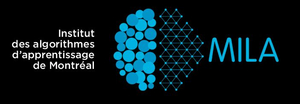Our research groups, laboratories, and research centres
Research centre
Interuniversity Research Centre on Enterprise Networks, Logistics and Transportation (CIRRELT)

The CIRRELT's research activities focus on the planning of logistics and transportation networks, as well as information and decision-support technologies. The members of the CIRRELT work on developing models and algorithms for designing, operating, and automating communication networks.
Research groups
Software Engineering Research Group (GEODES)

The GEODES group focuses on the state of the art in object-oriented development processes and tools, automated software quality assurance, the application of formal methods to the software development cycle, software tools for modelling business logic, automated software re-engineering, software architectures for electronic commerce, and interoperability problems with web applications.
Applied Research in Computational Linguistics (RALI)

The RALI and its members conduct world-leading research in the fields of computer-aided translation, information retrieval, data extraction and display, as well as automated text summarization. In addition to general problems in the field, RALI researchers focus on trans-linguistic and multilingual information: namely, finding relevant documents in one or more languages that differ from the original query language provided by a user.
Research chairs
Canada Research Chair in Quantum Information Processing
Directed by Gilles Brassard, this Canada Research Chair focuses on applying quantum mechanics to computational information processing. Quantum mechanics explains the behavior of the building blocks of all matter and energy, such as photons, electrons and atoms. Leveraging the physics of our world on this small scale will allow future computation systems to tackle problems that are fundamentally impractical to solve with today's systems.
Canada Research Chair in Statistical Learning Algorithms
The Canada Research Chair in Statistical Learning Algorithms, held by Yoshua Bengio, works on the state of the art in neural network and machine learning algorithms.
Canada Excellence Research Chair in Autonomous Artificial Intelligence
What happens in our brains when we solve problems? And, how can we use the answers to that question to improve both our brains and artificial intelligence (AI)? It's what world-renowned AI expert Irina Rish, wants to find out. Her research examines AI at the point where machine learning and neuroscience intersect.
Canada Research Chair in Stochastic Simulation and Optimization
The Canada Research Chair in Stochastic Simulation and Optimization is directed by Pierre L'Écuyer. Its goal is to develop stochastic methods for simulating and optimizing complex physical systems.
Canada Research Chair in Demand Forecasting and Optimization of Transport Systems
The Canada Research Chair in Demand Forecasting and Optimization of Transport Systems develops methodologies combining statistical learning and operations research to forecast demand while optimizing the network of transport services. Emma Frejinger and her team use data to forecast demand and design transport systems that satisfy the demand while minimizing negative impacts and inefficiencies in the system. The research will allow to build tools supporting the planning and operation of transport systems so that Canada's population can get the services they need sustainably.
Laboratories
Higher Educational Research ON emotionnal intelligence and privacy protection (HERON)

The HERON laboratory conducts multidisciplinary studies in the fields of artificial intelligence, multimedia, cognitive science, education, knowledge management and electronic commerce. More recently, it has focused its research on emotional intelligence, so as to better understand the functioning of the brain.
Image Processing Lab

The Image Processing Lab studies computer-assisted vision and applications to medical imaging. Statistical models of image segmentation, shape monitoring, and object recognition are also problems of interest to the lab.
Laboratoire de biologie informatique et théorique (LBIT)
The members of the LBIT study and contribute to the growing field of bioinformatics, an interdisciplinary research area that benefits from the increasing proliferation of large-scale genetic data. The researchers of the LBIT develop and apply algorithms to analyze biological data and model the inner workings of many fundamental biological processes.
Université de Montréal’s Computer Graphics Lab (LIGUM)

The LIGUM is interested in all aspects of computer graphics including realistic image synthesis for feature-film production, character and fluid animation, procedural and geometric modelling, and interactive graphics for video games.
Members of the LIGUM actively contribute to the state of the art in modern CG, working alongside industrial partners such as Disney, Microsoft Game Studios, Mokko Studio, Autodesk Canada, Ubisoft, and Electronic Arts, to name a few.
LIGUM's students go on to work in the video game and film industry, and the research produced by the lab has been used in the latest generation of interactive video games as well as several feature-film productions.
Laboratoire d’informatique théorique et quantique (LITQ)
Researchers at the LITQ laboratory investigate new discrete mathematical models and make advances in graph theory, computational complexity, cryptography, quantum information processing and the fundamentals of quantum mechanics.
Parallel Processing Laboratory (LTP)
The researchers and students in the Parallel Processing Laboratory work on the design, implementation and evaluation of sequential and parallel programming languages.
Montreal Institute for Learning Algorithms (MILA)

MILA's research deals with statistical learning algorithms, working to develop algorithms that allow computers to acquire and use information present in readily available datasets. The research conducted at the MILA is at the crossroads of artificial intelligence and statistics.
Networks Research Laboratory (NRL)
The members of the NRL develop techniques to better support distributed systems and applications that use networks for communication. The NRL's research program includes the design and development of new algorithms, architectures, management schemes, and data communication techniques for next generation networks, including cloud computing systems and services.
Laboratory for Simulation and Optimization (OPTIM)
The members of the OPTIM lab contribute to the development of exact and heuristic algorithms for solving practical problems related to employee scheduling, vehicle routing, call centre management, and telecommunications network management.
Members of the group also study theoretical domains such as random number generation, fractional programming, and problems dealing with the general characterization of convex and monotone classes.
Robotics and Embodied AI Lab (REAL)
The Robotics and Embodied AI Lab (REAL) is a research lab in DIRO at the Université de Montréal and is also affiliated with Mila. REAL is dedicated to making generalist robots and other embodied agents.
Artificial Intelligence in Cybersecurity Lab (talents)

Newly founded in 2019 by professor Esma Aïmeur, this lab specializes in Artificial Intelligence for Cybersecurity.
We adopt an out-of-the box approach to solve current issues in privacy, cyber threats and the lack of awareness amongst Internet users. We do so by introducing a multitude of expertise in other fields such as Natural Language Processing (NLP), Human Factors in Cybersecurity, Recommender Systems, Emotional Intelligence, Ethics of AI, psychology, digital humanities, Law and Sociology.
We believe in the combined talents of our members to pave the way for future innovation and cutting-edge solutions to one of the most relevant topics in today’s world: Artificial Intelligence for Cybersecurity.
3D Vision Lab
The 3D Vision Lab explores fundamental and applied research on three-dimensional aspects of computer vision. Specifically, the researchers in the 3D Vision Lab focus on 3D reconstruction from multiple images, motion analysis in video sequences, panoramic imaging, and large-scale multi-projector imaging on arbitrary surfaces for immersion applications. Special attention is paid to artistic and cultural applications of the research.